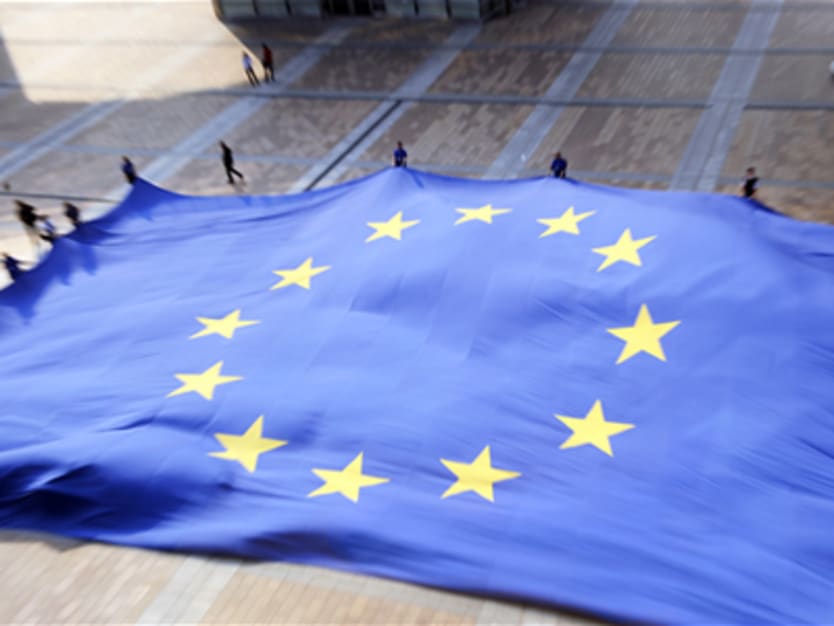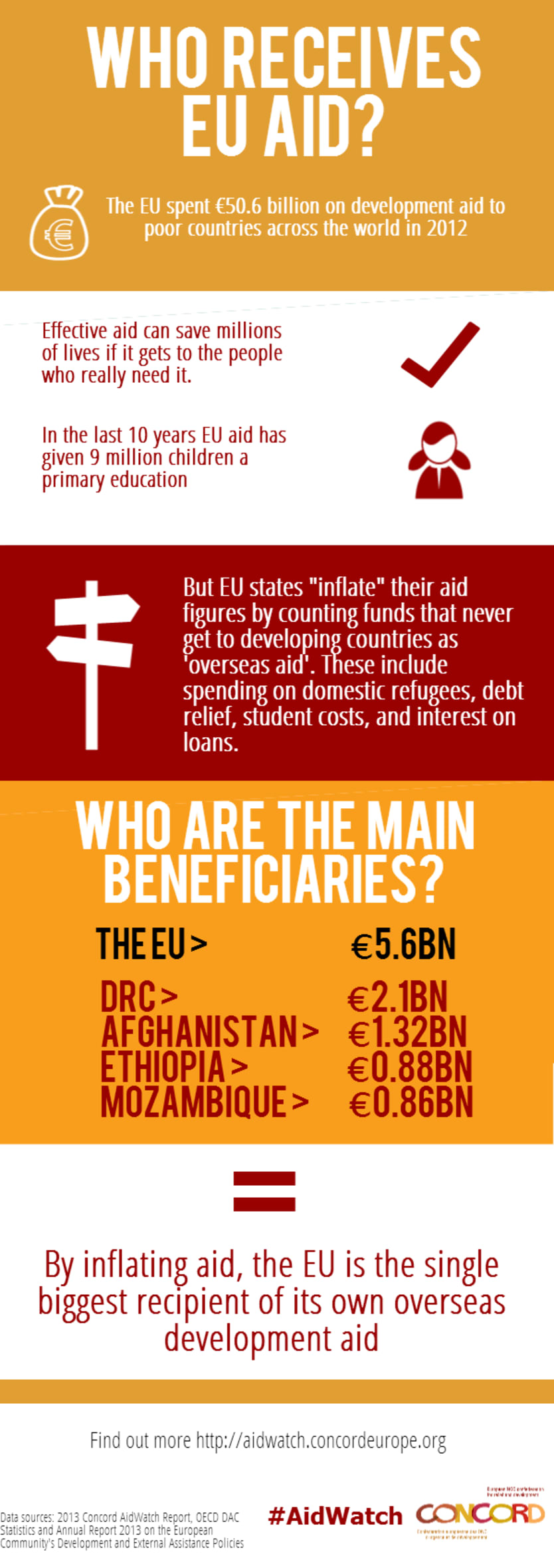
The deadline for traditional donors, including European countries, to meet their aid targets is only less than two years. But instead of moving forward, EU aid is expected to remain almost stagnant, with several countries set for further cuts in coming years.
EU member states spent €50.6 billion ($68.4 billion) in official development assistance last year, according to the latest AidWatch report by CONCORD, the confederation of European NGOs. This is 4 percent less than in 2011, when total EU ODA spending reached €53 billion, and is expected to mimimally increase by only 0.4 percentage points in 2014.
This suggests that substantial cuts taken by Spain, Italy, Cyprus, Greece and Belgium overshadowed increases made by Latvia, Luxembourg, Poland, Austria, Lithuania and the United Kingdom. Aid from the Netherlands, meanwhile, which used to be part of the 0.7 percent club, is set for decline.
Dutch aid is expected to drop from 0.71 percent in 2012 to 0.60 percent of its gross national income by 2015. Minister for Foreign Trade and Development Cooperation Lilianna Ploumen has previously argued this is part of the country’s plans to make its development policies more coherent, and assured that less aid money will not mean “less results.”
AidWatch notes however that the donor has yet to produce a clear agenda on this issue, but that “increasing proportion of [its] ODA is already being allocated to trade-related activities.”
Only five countries were projected by AidWatch to meet their 2015 aid targets: Denmark, Estonia, Malta, Sweden and the United Kingdom. It it not sure whether Luxembourg, whose aid has consistently been above the 0.7 percent target, will be able to do so with the impending change in government. But it notes a “drastic change in ODA by the new government is considered unlikely.”
Meanwhile, big players such as Germany and Ireland — the latter having just announced another aid cut — are projected to miss their targets.

These cuts however are not the only items that is worrying and frustrating many NGOs. The continuous inclusion of debt relief, refugee costs, tied aid and interest loans in EU ODA have kept EU member states’ overall aid spending in 2012 at almost the same levels the previous year.
The amount of aid that went to these areas — which AidWatch labels as “inflated aid” — was only €5.6 billion or 1.75 percentage points less than in 2011, when it reached more than €7 billion or 7.35 percent of total EU ODA. That amount could have sent more children to school, or provide health care to millions more, aid groups argued.
“Genuine aid has to reach those who need it the most rather than being used to pay off interest on debt,” Oxfam EU head Natalia Alonso said in a statement.
EU countries’ spending on climate finance has also been put on the spotlight, but the lack of data has prevented aid groups from including it in the report.
Aid groups’ recommendations to EU governments remain the same: end aid inflation, exclude climate finance from ODA, and meet long-standing aid commitments. This year’s report however also highlights the importance of EU countries following through their Busan commitments, which include the promotion of country ownership, transparency, and untied and predictable aid.
Read more development aid news online, and subscribe to The Development Newswire to receive top international development headlines from the world’s leading donors, news sources and opinion leaders — emailed to you FREE every business day.








